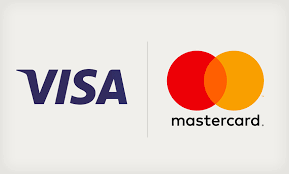Transition Period
During the transition period (also known as the implementation period), no tariffs will apply to UK goods placed on the EU market and vice versa. UK-based firms will retain access to the Single Market as under current arrangements, including for aviation, road haulage and other cross-border economic activities.
No tariffs will apply to goods placed on the market before the end of transition period where the movement of goods has not been completed before the end of transition period. Such goods will move freely until they reach the end user.
In principle, the EU’s current free trade agreements will continue to apply. The EU will inform partners of the transition period – but it is uncertain as to whether the agreement of these third countries is required. The UK would adhere to EU FTAs, working on the basis of reciprocal adherence.
The UK will be able to negotiate, sign and ratify its own agreements provided they do not enter into force before the end of the transition period.
Backstop
If the ‘backstop arrangement’ comes into force, a single customs territory would be created between the UK and the EU. There are separate provisions for Northern Ireland, the detail of which can be accessed here.
Customs duties would be prohibited on any goods in free circulation (originating in the EU/UK or not) as well as products produced from inputs from outside EU/UK which were not in free circulation, provided all appropriate formalities have been completed. If the goods do not meet the conditions, third-party tariffs (WTO rates) would apply. UK and EU tariffs would be fully aligned. No rules of origin would apply, but traders would need to demonstrate that goods are in free circulation and all conditions have been met. A new movement certificate, A.UK, will be used for this purpose.
Existing Free Trade Agreements (FTAs) would not automatically be rolled over under the backstop arrangement. However, in principle, the EU, the UK and third countries could negotiate a roll-over of the agreements on a trilateral basis. The lack of continuity would also apply to the customs union with Turkey. Further clarification is required on the details of UK-Turkey trade during backstop, were it to come into effect. There is no detail on how aviation would be impacted by this scenario.
Post Transition / Backstop
Post transition or backstop arrangement, the mutual objective outlined in the Political Declaration is for no tariffs, fees, or quantitative restrictions on the movement of goods. Ultimately this will depend on the outcome of detailed discussions on the future partnership agreement. It is understood that the UK would be outside the EU VAT regime and so import VAT could be payable on goods – but it would be collected via normal VAT accounting returns (using postponed accounting).
The Political Declaration states an ambition for no rules of origin, to build on the single customs territory and create a free trade area, combining deep regulatory and customs cooperation. Ultimately, this will depend on the outcome of further negotiations.
In principle, the EU, the UK and third countries could negotiate a roll-over of the existing free trade agreements on a trilateral basis, but the Political Declaration stresses that the UK will operate an independent trade policy post transition.
The future of UK-EU aviation services are not specified in the Political Declaration beyond a general statement about cooperation of authorities.
Trade Agreements
Trade agreements that the UK is part of as an EU member state will no longer apply if there’s a no-deal Brexit. The UK government is working on new agreements to replace EU trade agreements after Brexit.
View agreed trade deals and progress on those still under negotiation.
Some new agreements will not be in place before the UK leaves the EU. Trade will then take place on World Trade Organization (WTO) terms.



